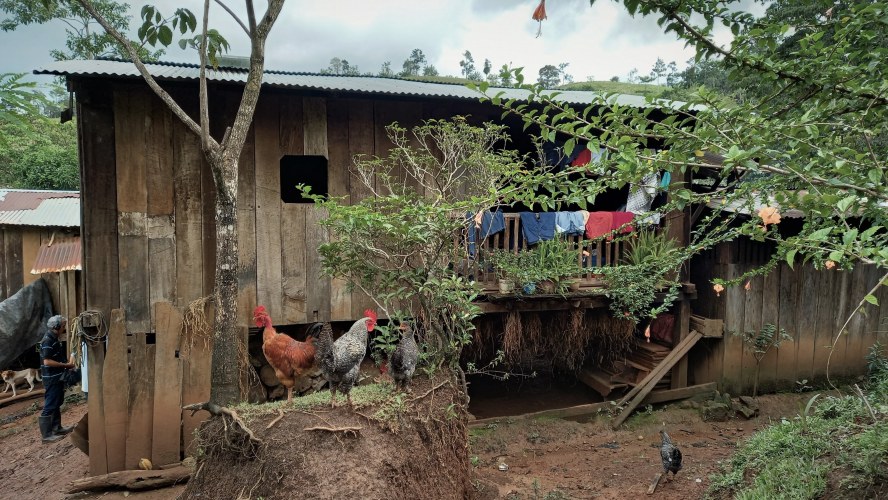In the community of Rancho Grande, wooden houses dominate, as if you were near a coast or a river that flood regularly. In this landscape adorned by coffee trees, you will find the farmer organisation Ríos de Agua Viva. Here, some 366 associated producers work cultivating cocoa not only in the volume and quality required by the buyers but also respecting the tropical forest that still covers the north of Nicaragua.
We were supposed to interview two young farmer members of the cooperative in April 2020 with a camera crew. Unfortunately, not one but two crises postponed our visit with Rikolto: first the Covid-19 crisis, and in November, two severe hurricanes that caused irreparable damage in Central America. We arrived on Yamileth and Santiago's land nine months later. This is their story of resilience.












